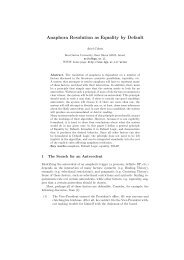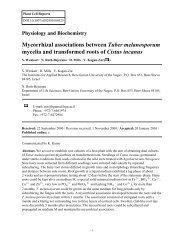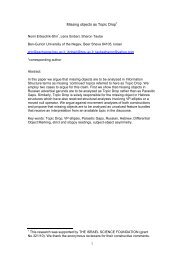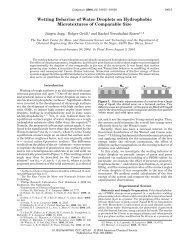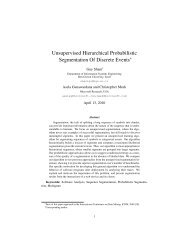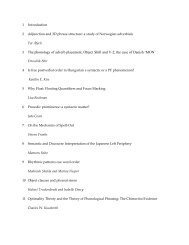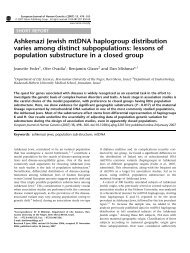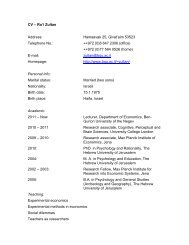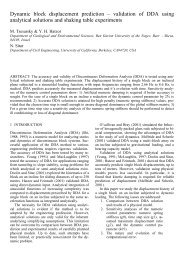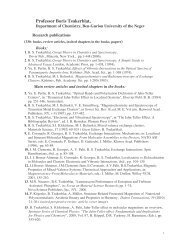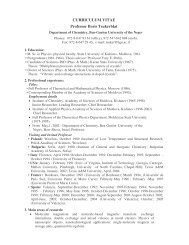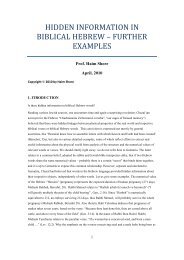Generics, Frequency Adverbs, and Probability
Generics, Frequency Adverbs, and Probability
Generics, Frequency Adverbs, and Probability
You also want an ePaper? Increase the reach of your titles
YUMPU automatically turns print PDFs into web optimized ePapers that Google loves.
Q(ψ, φ) is true iff<br />
⎧<br />
P (φ|ψ) = 1<br />
P (φ|ψ) = 0<br />
if Q = always<br />
if Q = never<br />
⎪⎨<br />
⎪⎩<br />
P (φ|ψ) > 0<br />
P (φ|ψ) > 0.5<br />
P (φ|ψ) > 0.5<br />
if Q = sometimes<br />
if Q = usually<br />
· · ·<br />
if Q = gen<br />
As it st<strong>and</strong>s, definition 1 does not really give us truth conditions. For it<br />
to do so, we need to specify the meaning of the probability judgment P (φ|ψ).<br />
What does it mean to say, for example, that the probability that a fair coin<br />
comes up “heads” is 0.5?<br />
The mathematical probability calculus, as developed by Kolmogorov <strong>and</strong><br />
subsequent researchers, will not help us here, since any function which satisfies<br />
its axioms is considered to be just as good as any other function. The<br />
meaning of probability has been the topic of much debate among philosophers<br />
since at least the time of Laplace, <strong>and</strong> many different theories have<br />
been proposed. It is not my goal here to provide a general solution to this<br />
philosophical problem; the aim of this paper is a considerably more modest<br />
one. I will follow L. J. Cohen (1989), who argues that there is no single “correct”<br />
interpretation of probability: different interpretations are appropriate<br />
for different types of probability judgment. In this paper I will propose an<br />
account of that specific kind of probability judgment which is expressed by<br />
generics <strong>and</strong> frequency statements.<br />
16



